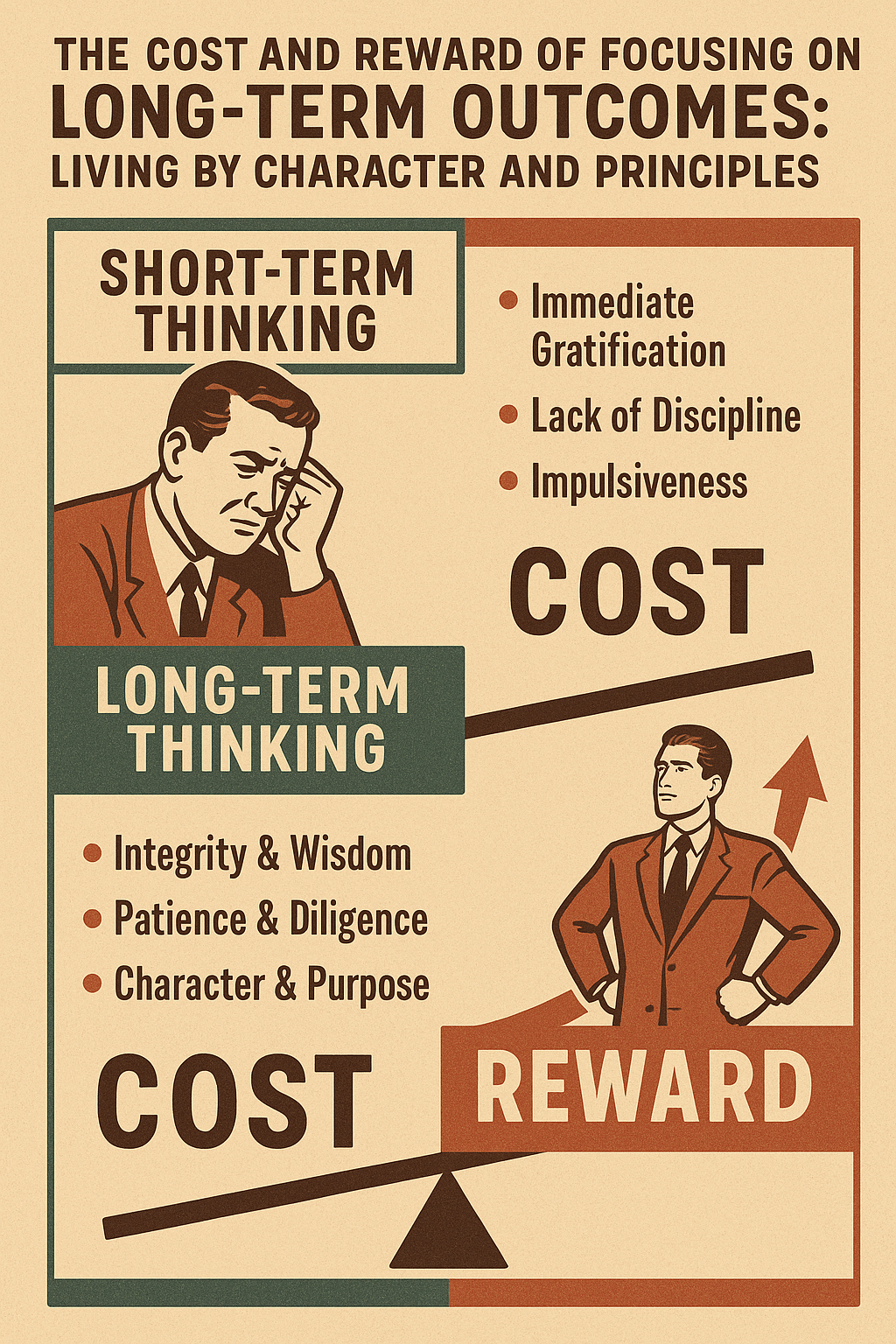“If you focus on long-term outcomes, expect to be misunderstood in the short-term, frequently.”
— Tom Gardner
This quote by Tom Gardner captures a powerful but often painful reality: principle-centered living, rooted in long-term vision and character development, almost inevitably invites misunderstanding, criticism, and isolation—at least for a time.
It is the battle between Character Ethic vs Personality Ethic, and Principle-Centered Living vs Everything-Else-Centered Living.
Understanding the Battle: Character vs Personality
In the early centuries of American life (and in classical societies before), success was defined by Character Ethic: integrity, humility, fidelity, courage, patience, justice, temperance, and hard work.
It wasn’t about appearances; it was about being good, not just looking good.
But as society became more superficial—especially after World War I—the focus shifted to Personality Ethic: image, charm, techniques, and quick fixes.
Success became about how you appeared to others, not who you really were.
Character Ethic is about:
- Long-term reputation based on truth
- Deep trust built over decades
- Doing what’s right even when it’s unpopular
Personality Ethic is about:
- Managing impressions
- Achieving short-term gains
- Pleasing others for immediate approval
When you choose Character and Principle over Image and Techniques, expect people to misunderstand you. They will often view you as naive, outdated, stubborn, or strange — because in a culture of fast rewards, those who work for slow, real growth seem out of place.
Principle-Centered Living vs Everything-Else-Centered Living
Stephen R. Covey in The 7 Habits of Highly Effective People warned about life centers:
Many people center their lives around spouse, money, pleasure, work, friends, or possessions—instead of principles.
- Money-centered people betray their values for wealth.
- Pleasure-centered people sacrifice deep growth for immediate gratification.
- Friend-centered people compromise principles for social acceptance.
- Self-centered people become trapped in their own ego.
Principle-centered living means:
- Staying true even when it’s costly.
- Refusing to “sell out” for temporary comfort.
- Being willing to endure short-term pain for eternal rewards.
Just as Christ taught “the way,” not a religion of convenience but a transformational lifestyle, so too must principle-centered individuals commit to the harder but higher path.
Why Expect Misunderstanding?
- Short-Term Thinkers cannot comprehend Long-Term Vision.
- Comfort-Seekers view Sacrifices as “stupid.”
- Image-Managers see Authenticity as a threat.
When you make decisions today based on where you want to be in five years, ten years, or even eternity, most people won’t understand.
They will ask:
- “Why work so hard?”
- “Why don’t you just take the easy route?”
- “Why can’t you just get along?”
But over time, the fruit of character will reveal itself.
“By their fruits you shall know them.” — Jesus Christ (Matthew 7:16)
In the beginning, you will feel misunderstood. In the end, you will be honored — if not by men, then certainly by God.
The Rewards of Living This Way
- Inner peace: You live according to your conscience, not popularity polls.
- Lasting influence: True impact is measured not in applause but in lives changed.
- Resilience: Principle-centered people cannot be easily manipulated by trends.
- Legacy: You leave behind a generational blessing of example, not just empty words.
Conclusion: Walking the Narrow Way
Choosing Character over Image, Principles over Popularity, and Long-Term Outcomes over Short-Term Comfort, is the narrow way Christ spoke about.
It is hard.
It is lonely at times.
But it leads to true life.
As Gardner reminds us: “Expect to be misunderstood.”
But as the Savior, the Prophets, the Founders, and all wise men throughout history show us: faithfulness now leads to honor later.
Stand firm. Your story isn’t finished yet.






